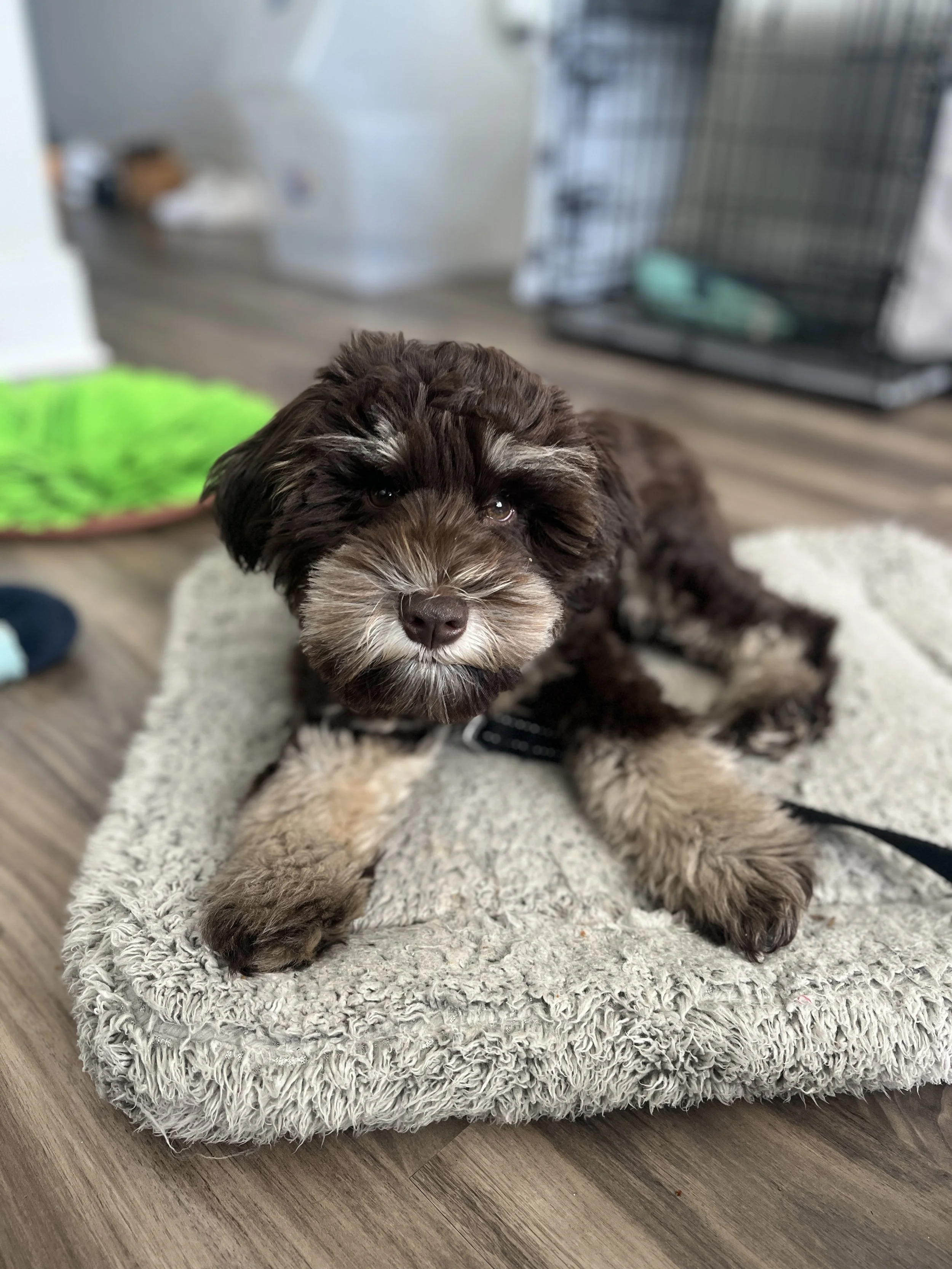How to Stop Puppy Mouthing Without Losing the Bond You’re Building
Biting Isn’t the End of the Trail
Bringing home a puppy feels like the beginning of a great adventure—and it is. But those razor-sharp little teeth? They can make the journey feel more overwhelming than joyful.
Many new puppy parents are told to yell “Ow!” or spray their pup with water when biting starts. But as a CPDT-KA, Fear Free certified trainer, and Family Dog Mediator, I want you to know: you don’t need harsh detours to stay on the right path.
In fact, outdated corrections often confuse your puppy, stall their learning, and chip away at the trust you’re working so hard to build. Luckily, there’s a better route—one grounded in science, communication, and compassion.
Let’s walk it together.
A brown mini schnauzer practicing a “place” command on a dog bed.
Why Puppies Bite
(And Why It’s Not Personal)
Mouthing is how puppies make sense of the world. Whether they’re teething, overstimulated, or just trying to say, “Hey, play with me!”—their biting is often a signal, not misbehavior.
And just like every trail marker means something, these behaviors tell us what’s going on under the surface.
Trail-Tested Tips for Mouthy Puppies
1. Plant the Right Options: Keep Chew Toys Abundant
Scatter 5–8 soft, safe toys around your space at all times. When your puppy picks one up instead of your hand—celebrate it. Engage. Praise. Let her know she chose the right trail.
2. Schedule Rest Stops: Naps Matter
Overtired puppies bite more. Make nap time part of your daily rhythm with a cozy crate or quiet corner. Think of it as a nervous system reset—not a timeout.
3. Use Enrichment to Channel Energy
Frozen Kongs, snuffle mats, Toppls, and slow feeders aren’t just busy work. They help your puppy practice calm focus and give that curious mouth a purpose.
📓 Field Note: Independent problem-solving builds confidence and curbs biting.
4. Stick to a Simple Trail Map
A predictable routine (think: meals → play → potty → nap) makes life easier for both of you. Puppies who know what’s coming next feel more secure—and bite less out of frustration.
When Biting Happens Anyway
Even with the best map, detours happen. Here's what to do when your pup latches on:
Redirect to a toy you know she loves
Get playful—encourage tug or a game to make the toy worth her time.Call in a tag team
Have a family member invite her across the room for a game of fetch or a mini training session. Redirecting her energy resets the moment without punishment.
⚠️ Trail Tip: If biting always leads to exciting games, your pup might start biting to get the game. That’s why proactive setup is your compass—it reduces the need for reaction altogether.
Need a Trail Guide for Your Teething Pup?
Puppy biting can feel like a dead end—but it’s just one part of the journey. At Canine Compass, we help families decode behavior and build lasting trust, using methods that make sense for your dog.
If your hands are covered in bite marks and you're ready for clarity, let's chat. Our single-session consultations can get you on the right path—no pressure, no shame, just guidance.
👉 Book your session at CanineCompassDogTraining.com
